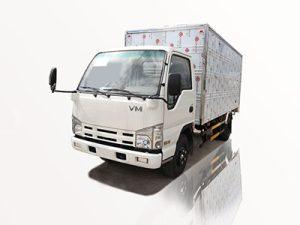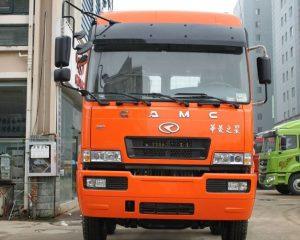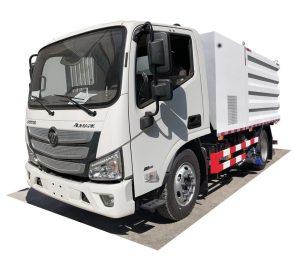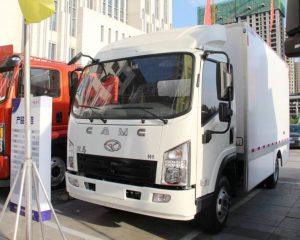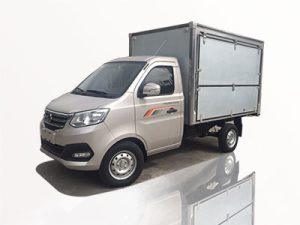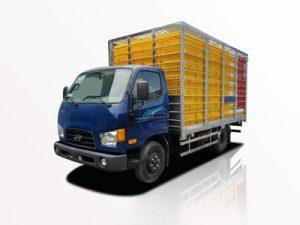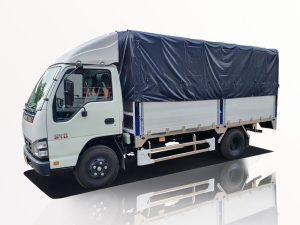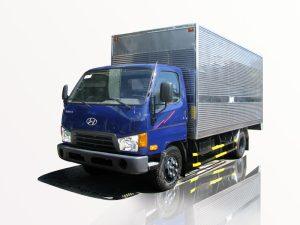Monday to Saturday - 8:00 -17:30
Pneumatic Tank Trailers: Comprehensive Guide for the Transport Industry
Pneumatic tank trailers are specialized vehicles designed for the safe and efficient transportation of dry bulk materials. These trailers use pneumatic pressure to load and discharge materials, making them essential for various industries. This article will explore the functionalities, advantages, types, maintenance, and selection criteria for pneumatic tank trailers. Furthermore, it will answer common questions to provide a holistic understanding of this vital transportation solution.
What are Pneumatic Tank Trailers?
Pneumatic tank trailers are designed to transport materials like powders, grains, and other dry bulk substances. They come equipped with a pressurized system that allows for efficient loading and unloading of materials, minimizing spillage and loss. Common products transported in these trailers include cement, plastic pellets, sand, and various chemicals. The trailers typically have a cylindrical body made from durable materials, allowing them to withstand high-pressure conditions.
Key Features of Pneumatic Tank Trailers
- Pneumatic System: Utilizes air pressure for loading and unloading materials.
- Durable Construction: Made from steel or aluminum to withstand harsh conditions.
- Compartmentalized Design: Allows for the transportation of different materials in separate chambers.
- Safety Features: Equipped with pressure relief valves and gauges to ensure safe operation.
How Pneumatic Tank Trailers Work
The operation of pneumatic tank trailers is centered around their air system. The process typically involves the following steps:
Loading Process
During the loading process, air is pumped into the tank, creating a vacuum that allows dry bulk materials to enter. This can occur at loading facilities or directly at the production site. Operators connect a hose to a compatible loading system, ensuring a tight seal to minimize dust and product loss.
Unloading Process
The unloading process reverses the loading procedure. The pneumatic tank trailer utilizes a pressure system to discharge the material. Operators attach a discharge hose to a suitable receiving system and then engage the air pressure to push the material out. This method is efficient and minimizes cleanup compared to traditional gravity discharges.
Types of Pneumatic Tank Trailers
There are various types of pneumatic tank trailers based on material type and design characteristics:
Standard Pneumatic Tank Trailers
These are the most common type, designed primarily for transporting dry bulk materials like powdered chemicals and grain. They typically have one or two compartments for different materials.
Vacuum Pneumatic Tank Trailers
Vacuum pneumatic tank trailers are designed for both loading and unloading materials using a vacuum system. They are effective for materials that require gentle handling to prevent damage.
Carbon Steel vs. Aluminum Tank Trailers
Tank trailers can be made from carbon steel or aluminum. Carbon steel offers durability and resistance to impact, while aluminum is lighter, providing better fuel efficiency. The choice often depends on the materials being transported and the operating conditions.
Advantages of Pneumatic Tank Trailers
Pneumatic tank trailers offer several advantages over other transportation methods:
Efficiency in Loading and Unloading
Pneumatic systems significantly reduce loading and unloading times compared to conventional methods, enhancing overall operational efficiency.
Minimized Material Loss
With proper sealing and pneumatic pressure systems, spillage and dust emissions are minimized, ensuring more of the material reaches its destination.
Versatility
Pneumatic tank trailers can transport a wide range of dry bulk materials, making them a versatile option for many industries.
Maintenance of Pneumatic Tank Trailers
Regular maintenance is vital to ensure the safe and efficient operation of pneumatic tank trailers. Key maintenance tips include:
Regular Inspections
Conduct routine inspections of all crucial components, including air lines, valves, and seals. Look for signs of wear or damage that could compromise safety.
Pressure System Checks
Regularly test the pressure relief valves and gauges to ensure they are functioning correctly. It is critical to maintain the correct pressure levels during operations.
Cleaning the Tank
Maintain cleanliness within the tanks, as residues can affect the quality of subsequent loads. Regular cleaning ensures no cross-contamination occurs when transporting different materials.
Documentation
Keep a detailed log of maintenance activities, inspections, and repairs. This documentation can prove invaluable for compliance and operational efficiency.
Selecting the Right Pneumatic Tank Trailer
When choosing a pneumatic tank trailer, several factors must be considered:
Material Type
Identify the type of material you will transport to select a trailer with appropriate features and design.
Capacity Requirements
Choose a trailer that meets your capacity needs without exceeding weight limits for safe transport.
Vehicle Compatibility
Ensure the trailer is compatible with your existing vehicle fleet, considering both weight and coupling systems.
Budget and Costs
Consider both the initial purchase price and ongoing maintenance costs when making your decision.
Examples of Industries Using Pneumatic Tank Trailers
Pneumatic tank trailers are utilized across various industries, including:
Construction Industry
Pneumatic tank trailers are commonly used to transport cement and other construction materials, where quick loading and efficient transport are crucial.
Agriculture Industry
Farmers use pneumatic tank trailers to move grains, fertilizers, and pesticides, ensuring the safety and integrity of products during transport.
Chemical Industry
The chemical manufacturing sector relies on pneumatic tank trailers to handle specialty chemicals that require careful transportation practices.
Common FAQs about Pneumatic Tank Trailers
What types of materials can be transported by pneumatic tank trailers?
Pneumatic tank trailers can transport a wide range of materials, including powdered grains, plastics, chemicals, cement, and other dry bulk substances.
How do you maintain a pneumatic tank trailer?
Routine maintenance includes regular inspections, checking the pressure systems, cleaning the interior, and maintaining documentation of all maintenance activities.
What are the advantages of using pneumatic tank trailers compared to other transportation methods?
Pneumatic tank trailers offer higher efficiency in loading/unloading, minimized material loss, and versatility across various transport needs compared to traditional methods.
Can pneumatic tank trailers be customized?
Yes, pneumatic tank trailers can be customized to meet specific industry requirements, including tank size, weight capacity, and compartment configurations.
What safety features should I look for in a pneumatic tank trailer?
Ensure that the trailer has pressure relief valves, safety gauging systems, secure loading and unloading connections, and appropriate signage for hazardous materials when necessary.
Are pneumatic tank trailers environmentally friendly?
Yes, pneumatic tank trailers help reduce dust emissions and spillage, contributing to a lower environmental impact compared to traditional bulk transport methods.


